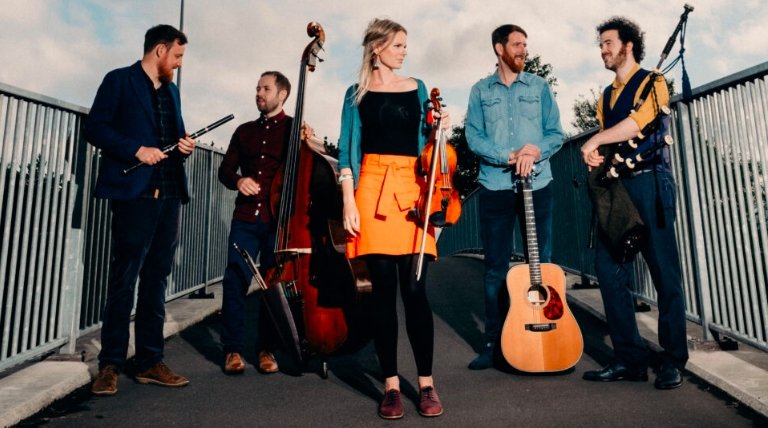The Grand Ole Opry, Scotland’s largest country and western club, is embroiled in a heated dispute over the use of the Confederate flag, which some members consider a symbol of racism and hate. The club, which has been operating since 1974, banned the flag from its premises in November 2023, following a vote by the majority of its members. However, a group of hardliners is challenging the decision and seeking to overturn it, claiming that the flag represents their heritage and culture.
The Origins of the Conflict
The Confederate flag, also known as the rebel flag or the Dixie flag, was originally used by the secessionist states that fought against the United States in the American Civil War (1861-1865). The flag has been widely associated with slavery, white supremacy, and racial violence, especially after it was adopted by the Ku Klux Klan and other hate groups. In recent years, the flag has sparked protests and debates across the US, with many states and institutions removing it from public display.
The Grand Ole Opry, which is located in Glasgow’s Govan area, has a long history of displaying the Confederate flag, along with other symbols of the American South, such as cowboy hats, boots, and guitars. The club, which hosts live music events, dances, and social gatherings, claims to be the largest of its kind in Europe, with more than 1,000 members. Many of the club’s members are fans of country music, which originated in the southern US and has roots in folk, blues, and gospel.

According to the club’s website, the Confederate flag was used as a “sign of friendship” and a “tribute to the music we all love”. The club also stated that it had no political or racial agenda, and that it welcomed people of all backgrounds and beliefs. However, some members and visitors felt uncomfortable and offended by the presence of the flag, which they viewed as a sign of intolerance and discrimination. They argued that the flag had no place in a modern and multicultural society, and that it contradicted the club’s values of respect and inclusion.
The Vote to Ban the Flag
In November 2023, the club’s management decided to hold a vote among its members to determine whether the Confederate flag should be banned or not. The vote was triggered by a complaint from a black visitor, who said he felt unwelcome and threatened by the flag. The club’s committee agreed that the flag had become a source of controversy and division, and that it was time to reconsider its use.
The vote was conducted by secret ballot, and the results were announced on November 28, 2023. Out of the 837 members who participated, 472 voted in favor of banning the flag, while 365 voted against it. The club’s chairman, John McCallum, declared that the flag would no longer be allowed on the club’s premises, and that anyone who violated the rule would face disciplinary action. He said that the club respected the views of both sides, but that the majority had spoken and that the decision was final.
The Backlash from the Hardliners
However, not everyone accepted the outcome of the vote. A group of about 200 members, who called themselves the “Rebels”, refused to abide by the ban and continued to display the flag on their clothing and accessories. They also launched a petition to reverse the vote, claiming that it was unfair and undemocratic. They accused the club’s management of bowing to political correctness and betraying the club’s traditions and identity.
The Rebels also alleged that the vote was rigged and manipulated by outside influences, such as the media and anti-racist activists. They said that the club had been infiltrated by “left-wing extremists” and “woke warriors” who wanted to destroy the club’s culture and values. They demanded a new vote, with more transparency and accountability, and threatened to take legal action if their demands were not met.
The club’s management, however, dismissed the allegations and defended the legitimacy of the vote. They said that the vote was conducted in a fair and honest manner, and that the results were verified by an independent auditor. They also said that the vote was a matter of internal governance, and that no external parties had any influence or involvement in the process. They urged the Rebels to respect the decision and to stop causing trouble and disruption.
The Future of the Club
The conflict over the Confederate flag has created a rift within the Grand Ole Opry, and has tarnished its reputation as a friendly and welcoming club. The club, which has been struggling financially due to the COVID-19 pandemic, has also faced criticism and backlash from the public and the media, who have accused it of harboring racist and hateful sentiments. The club has denied these accusations, and has insisted that it is a diverse and inclusive community that celebrates country music and culture.
The club’s management has expressed hope that the dispute will be resolved peacefully and amicably, and that the club will be able to move on and heal from the controversy. They have also said that they are open to dialogue and compromise, and that they are willing to listen to the concerns and suggestions of all members. They have appealed to the Rebels to accept the vote and to cooperate with the club’s rules and regulations.
However, the Rebels have shown no signs of backing down or giving up. They have vowed to continue their fight and to challenge the ban in court. They have also said that they are prepared to leave the club and form their own group, if their demands are not met. They have claimed that they have the support of many other members, who are afraid to speak out for fear of retaliation and ostracism.
The Grand Ole Opry, which was once a symbol of harmony and unity, is now facing a crisis of identity and legitimacy. The club, which has been a part of Glasgow’s cultural and social scene for nearly 50 years, is at risk of losing its members, its fans, and its reputation. The club, which prides itself on being the home of country music in Scotland, is now the center of a bitter and divisive conflict over a flag that has divided a nation.


















